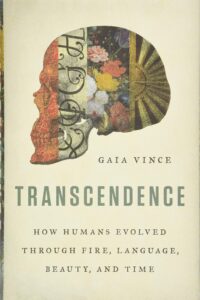calsfoundation@cals.org
Homemade Soap versus the Chatbot
Now that everyone else has written think pieces about AI, it’s time that the CALS Encyclopedia of Arkansas weighed in. But first, let’s talk about soap.
I like to buy handmade soap when there are vendors selling it at the local farmers’ market. I won’t argue that some homemade artisanal goat milk soap is necessarily better than the mass-produced stuff I also keep on hand. But my wife likes how it smells, and just as important, I like making it profitable for someone to keep this particular skillset alive.

In my own life, I have a few basic skills that I have worked to cultivate. As you might guess, given that I’m going to a farmers’ market, I like to do a lot of cooking from scratch. I have a range of things I can cook without reference to a cookbook at all, especially such southern classics as handmade biscuits and chicken and dumplings. I really like whipping together random meals made out of whatever happens to be in the fridge, whatever happens to be in season. I won’t claim to be a great cook, but I can feed a group of people on short notice. Sure, I could save some of my time, if not my money, just picking up something pre-prepared, and I’m occasionally tempted, but cooking is a skill I like to maintain.
In much the same way, my wife has a hobby/obsession with the fiber arts. She taught herself to knit, taught herself to crochet, and now spends some part of her mornings or evenings at a loom, weaving away. Considering the significant time it takes to produce anything, she could profit better by buying something machine-made. But she likes having the skill. She likes having the control to do what she wants with yarn and thread.

I was contemplating how important it is to maintain certain skills, at least distributed through our larger groups, while reading Gaia Vince’s 2019 book, Transcendence: How Humans Evolved through Fire, Language, Beauty, and Time. For earlier human societies, traditions were an important means of preserving the practices that preserved societies. She notes several instances in which the elders of a particular tribe died en masse of disease, or a small subset of the tribe got cut off from the larger group, both of which conditions could result in the loss of traditions, demonstrated most clearly by a diminishment of the toolkit available to people. Groups cut off from or deprived of their elders suffered a loss of practical knowledge and thus found themselves struggling to survive.
In our modern age, it’s quite difficult to be cut off from the rest of the world. But with the rise of literacy as our prime source of information, with books replacing tradition, and then the digitization of all that information, we live in a heavily interconnected yet inherently fragile state. One of the podcasts to which I listen to keep up my Swedish-language skills, P3 Dystopia, features an episodic account of the myriad ways in which everything could fall apart for us. For example, in 1859, a solar storm known as the Carrington Event produced auroral displays in the tropical regions of the world and disrupted the telegraph system across the globe. Today, such a storm would probably knock out all of our satellites and essentially destroy the internet. You wouldn’t even be able to Google “how to survive the apocalypse.”
Thus do I think it important that we work to keep some of these older skills in circulation. Just in case. But what does this have to do with AI?
We have collectively lost a lot of skills due to the development of technological solutions to the same problem those skills aimed to address. Factory-made clothes means fewer people in a household, if any, know how to sew, for example. Technology keeps coming for skill after skill, all to make our lives easier, we are told, and so that we might not spend our days in drudgery but instead develop newer skills, pursue more creative endeavors.
Except that now, technology seems to be coming for those creative pursuits. Granted, most AI-produced art or writing is junk, just as few frozen dinners are genuinely appetizing, but many consumers of creative materials (and food) are fine with junk, if we’re honest. Or they, like so many of us, just want to save time for things they consider more important in their lives.
And so for the first time, our societies are going to have to work to keep some of the higher skills, such as writing and researching, alive. Some large language model might be able to produce a facsimile of creative work that meets someone’s needs, even most people’s needs, leaving genuine writing and thinking a niche skill just like soap making. You can imagine, perhaps, a future state park where bespectacled folks re-create the writing process, showing how people in “them olden days” typed on computers continuously for minutes or hours, day after day, rather than just inputting a prompt into a screen and waiting for the result.
 Or will it come to that? Could EOA writers actually be replaced by some chatbot? I doubt it. Sure, maybe a chatbot could generate something that reads like an entry for some subjects. For example, we have in the works an entry on the new streaming miniseries Shiny Happy People about the Duggar family of Arkansas. There is enough information online that such a bot might be able to produce a semi-viable summary of the series—I haven’t tried and honestly have no interest in doing the experiment.
Or will it come to that? Could EOA writers actually be replaced by some chatbot? I doubt it. Sure, maybe a chatbot could generate something that reads like an entry for some subjects. For example, we have in the works an entry on the new streaming miniseries Shiny Happy People about the Duggar family of Arkansas. There is enough information online that such a bot might be able to produce a semi-viable summary of the series—I haven’t tried and honestly have no interest in doing the experiment.
But consider other topics. The EOA just recently added an entry on activist Johnnie B. Pugh, for example, and the bulk of the information for it came from an archival collection here at the CALS Roberts Library. The material had to be gone through by hand by our author, and there was really very little information about Pugh online before our entry went up. Our new entry on Ed Walker’s Drive-in and Restaurant pulled information from city directories and other sources that are not digitized. A book about Arkansas’s prison system, Long Line Rider, is a rather obscure title about which little has been written.
Compared with other southern states, Arkansas remains relatively understudied, which means that so much of the material offered on the EOA relies upon primary sources or perhaps some rare and poorly accessible secondary sources. You cannot simply ask some bot to produce an entry on the Mountain Signal newspaper or the Lawrence Memorial Hospital because it won’t be able to access the information that our real, flesh-and-blood authors can, people trained in research methods and the use of archival materials.
And so we need to keep alive the research skills needed to uncover historical information and the writing skills needed to summarize and express those findings. No chatbot can ever correct for Arkansas history being overlooked in the field at large. In fact, since these large language models are trained on what is already online, the same disparities in coverage already at play will only be duplicated and reduplicated.
There is no shortcut to producing reliable Arkansas history. We have to do it ourselves.
By Guy Lancaster, editor of the CALS Encyclopedia of Arkansas



